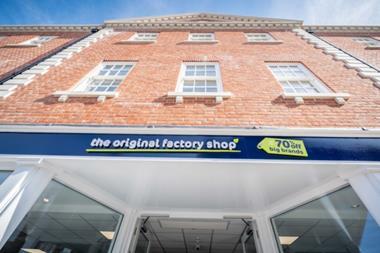In the same way the pandemic affected life long after the wave settled, the cost-of-living crisis will have a long-term impact for all, but how is it affecting retail workers and what can be done to help, asks the Retail Trust’s Chris Brook-Carter.
As I write, the pound is at its lowest value ever, inflation is at a 40-year high and interest rates are rising so quickly that banks are halting mortgage lending. Energy bills are set to increase yet again and food prices are up by at least 5%.
The cost-of-living crisis is very real and it’s only just begun. As the biggest employer in the UK outside of the public sector – and one with a workforce whose wages are skewed to the lower end of the scale – people working in retail will be disproportionately affected.
It has already been identified as the biggest worry facing the 1,500 retail workers we surveyed for our Health of Retail report earlier this year – and that was months before the brunt of the crisis had taken hold.
“We’re now seeing a 38% increase in applications for financial aid from retail workers this year compared with January to September 2021”
This was backed up by interviews we carried out with leaders of 20 household retailers who said financial worries were one of the top factors impacting their employees’ wellbeing.
We’re now seeing a 38% increase in applications for financial aid from retail workers this year compared with January to September 2021, with 15 applications a day, and a 68% increase in visits to Retail Trust’s online financial health support over the same period.
We applaud the retailers that have already made financial commitments to their workers with wage increases, but we also understand that for an industry built on small margins, this isn’t a realistic or long-term solution for everyone.
The government of course has an important role to play in helping the millions of people affected. We hope to see much clearer leadership from the government on the big structural issues that continue to cause people working in the retail sector so much anxiety and that have caused the retail industry itself so much pain over the past decade.
“We applaud the retailers that have already made financial commitments to their workers with wage increases, but we also understand that for an industry built on small margins, this isn’t a realistic or long-term solution for everyone”
While there is a limit to the financial help the industry can offer, there are avenues retailers can go down to help their people, starting with tools that will help people draw out their wages early without any sort of penalty.
When it comes to shielding employees through the very worst of this crisis, it’s also important to remember that all employers have a duty to support every aspect of a person’s wellbeing, including their financial health, during and outside working hours.
More needs to be done around financial education to ensure employees have access to the right skills to manage household budgets and understand the long-term impact of some of the cost-of-living increases as well as what they can do to manage their costs.
We’re proud to work with a wide range of retailers that are already providing tools, services and channels that are helping their people deal with the uncertainties and worries around their money – and putting them in touch with other partners can help.
The Retail Trust’s next Leaders’ Summit in November will bring together retail leaders, brands and organisations like this who are united in wanting to create a healthy, happy and thriving workforce, and we would urge you to join us as we explore the issues facing teams across the industry right now and will be crucial to the future of the sector.
We would also urge anyone worried about the impact of the cost-of-living crisis on them and their family to contact our 24-hour wellbeing helpline on 0808 801 0808 or visit Retail Trust’s website for tips and tools on financial management.

Chris Brook-Carter is chief executive of the Retail Trust





























